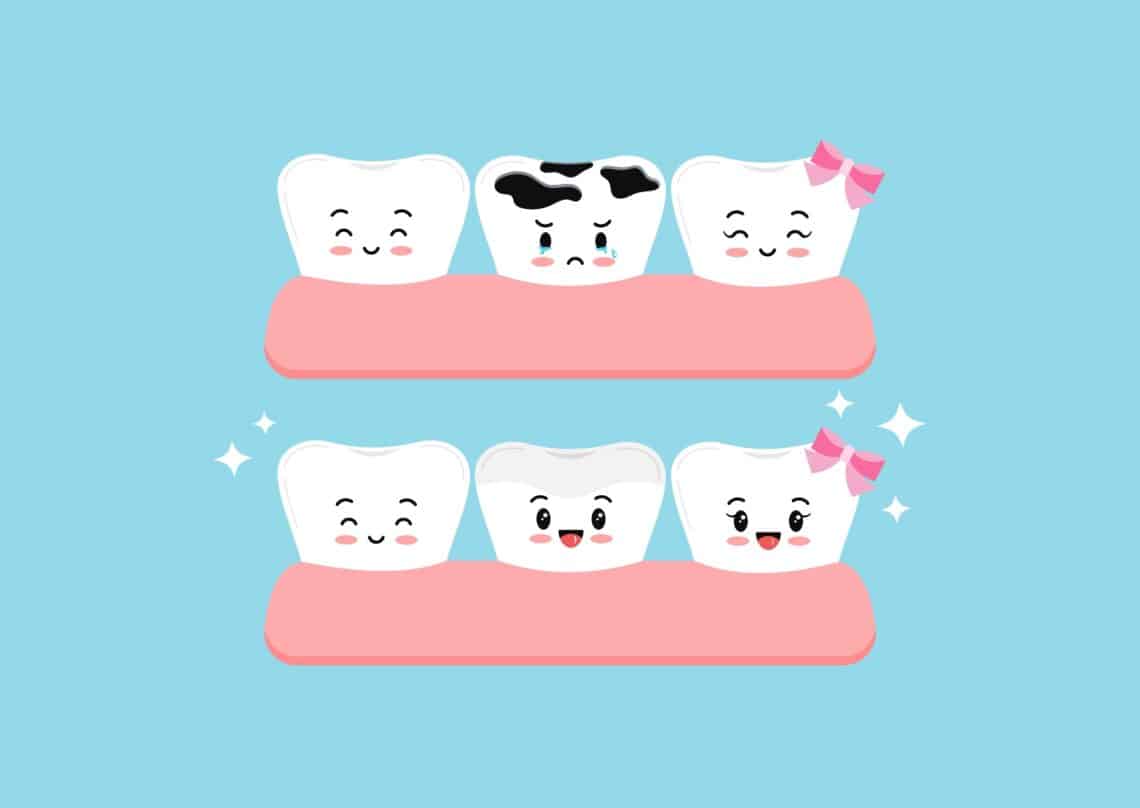
When teeth are damaged on the surface but the roots remain healthy, there are dental procedures available to remove the damaged part of the tooth and replace it.
If it is possible to save the tooth’s pulp and roots, crowns or caps may be a good option. They preserve the integrity of the jaw, look like natural teeth, and are as easy to care for as natural teeth with regular brushing, flossing, and dental cleanings.
But what is the difference between dental caps and crowns? How do you know what is right for your needs?
What Are Caps on Teeth?
The term caps is an antiquated term that refers to the tooth-shaped piece that goes on top of the damaged tooth. It is only used by people outside of the dental industry who are unfamiliar with the process.
Essentially, “caps” are dental crowns. Both of these terms refer to the process of capping a tooth that has been damaged, or placing a crown on top of the healthy root and pulp of the tooth after the damage has been removed.
What Are Tooth Crowns?
Tooth crowns are one way to address issues with teeth when they are damaged due to wear and tear, decay, or injuries. If any of these issues causes your tooth to lose some of its bulk or to change shape, a crown can be a good way to “cap” that tooth, giving it a healthy appearance and strengthening it so it holds up to continued use.
A crown is firmly attached to the tooth and cannot be removed without a dentist. It completely covers your original tooth beneath it.
Teeth Caps vs. Crowns
When it comes to the question of crowns vs. caps on teeth, there is no decision to make because they are the same thing.
Depending on how or why the tooth is damaged, the real choice may be between crowns, veneers, inlays, or inlays.
Should I Get Tooth Crowns/Caps or Choose Another Dental Option?
The choice to get tooth crowns or caps is one that should be made with the support and guidance of a knowledgeable dentist. A dental crown might be a good choice for your situation if you need to do any of the following:
- Anchor a dental bridge in the mouth
- Protect a tooth from damage that may be weak, cracked, or otherwise vulnerable
- Cover up cosmetic flaws like cracked, chipped, discolored, oddly shaped, or worn teeth
- Cover up a large filing that has left little tooth remaining or a dental implant
Make an Appointment With Dison Family Dentistry
If you would like to discuss your options for handling a tooth you feel should be covered by a crown, contact Dison Family Dentistry today. We can help you determine the best path forward and create a treatment plan that will give you the smile you deserve.
